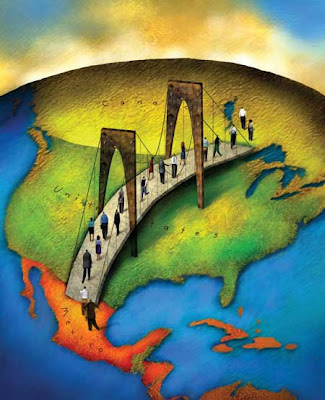 “Someone’s going to lose a job, but many more will gain one so, in the aggregate, the world is economically better off.” — Professor Kevin C. Kennedy
“Someone’s going to lose a job, but many more will gain one so, in the aggregate, the world is economically better off.” — Professor Kevin C. KennedyFree trade is a system in which the trade of goods and services between or within countries flows unhindered by government-imposed restrictions. Such government interventions generally increase costs of goods and services to both consumers and producers. Interventions include taxes and tariffs, non-tariff barriers, such as regulatory legislation and quotas.
The Colombian trade deal with the United States is at a stalemate. Even though it would benefit Americans more than Colombians, it will not be passed anytime soon due to silly politics and to the simple fact that politicians are doing anything they can to win over voters.
Below are some facts
- In the recent months, nearly 100 newspapers in the U.S. have endorsed the Colombian trade agreement. So have many top democrats, including Mayor Richard M. Daley of Chicago.
- At least 55 members of Congress, including two Democrats from the Senate and 25 from the House, have traveled to Colombia, in trips usually led by an indefatigable cheerleader for the trade pact, either Ms. Schwab or the commerce secretary, Carlos M. Gutierrez.
- The White House says Mr. Bush has called for passage of the deal 40 times, and Ms. Schwab and other cabinet members have given 145 speeches on it.
- The administration has lined up the support of Democratic mayors and members of the Clinton administration, and obtained endorsements from trade associations with ties to Democrats, including those for the movie, music and consumer electronics industries.
- By itself, trade with Colombia represents barely 1 percent of total United States trade volume. Imports from Colombia totaled $9.4 billion in 2007, mostly oil, spices, coffee and tea. Exports, of machinery, chemicals, plastics, corn and other goods, were $8.6 billion.
Some important links
No comments:
Post a Comment